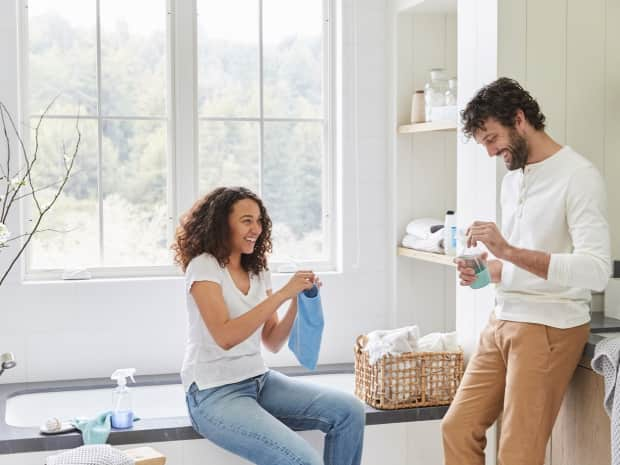
Grove's easy tips for how to go plastic-free at home.
Follow these easy steps to go plastic-free throughout your home. Your recycling bin will thank you!
Read More

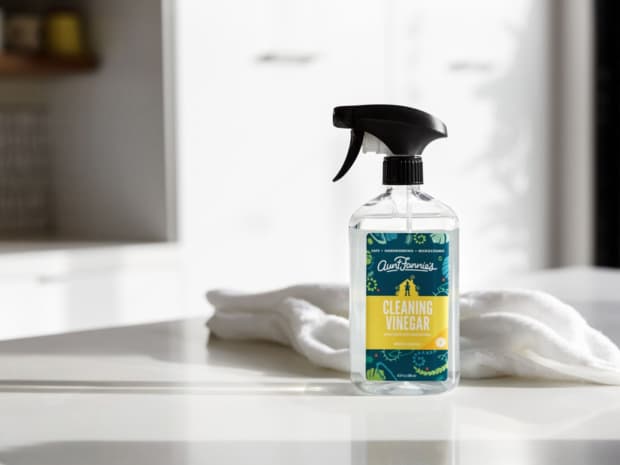
Last Updated: June 4, 2021
Vinegar is a great all-natural cleaner that’s been used in households to wipe up all kinds of messes for ages. But what really is vinegar and can it tackle nasty bacteria?
These days, it feels like all we talk about is wiping, disinfecting, cleaning, and scrubbing in the pursuit of a really good clean, oftentimes turning to natural products like vinegar to tackle messy jobs.
But did you know that there’s a difference between a cleaner solution and a disinfecting formula? Or that vinegar is a natural powerhouse fantastic for a streak-free shine?
We tapped our Senior Director of Science Formulation, Clement (aka Clem) Choy, Ph.D., for the dirt on vinegar and whether or not it's the natural, cleaning (or disinfecting) solution we’ve all dreamed of.
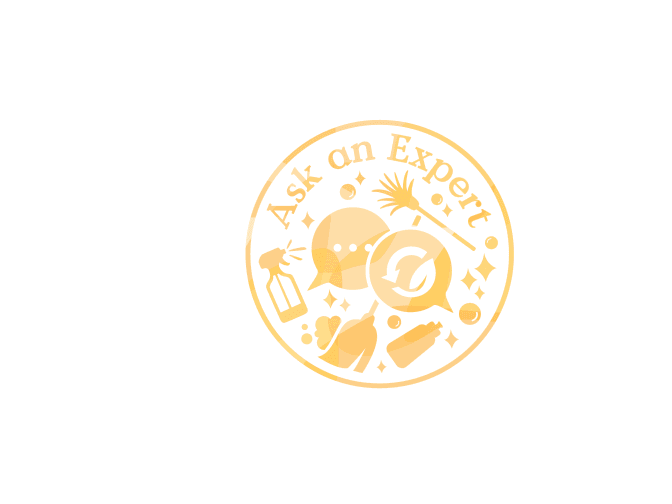
Here at Grove, we're big believers in saving the planet with science — and without sacrificing products' effectiveness. To break down how natural and sustainable products manage to stack up against the competitors without questionable chemicals, we're grilling our scientists, doctors, and fellows for easy-to-understand primers and explanations on how products work.
Clem Choy: Vinegar is a diluted, typically at five percent, acetic acid, and is a chemical. So it’s a very diluted, watered down, organic acid, and typically cleaning vinegar is just white vinegar.
In fact, there's really not much of a difference between what’s marketed as cleaning vinegar and regular food vinegar. That's why you see Heinz selling cleaning vinegar.
But it also has some pretty nice cleaning properties that a lot of people like to use in their homes, especially on windows because it cuts down on a lot of streaking. So there’s some good things to vinegar, but there's also some baggage with vinegar because it smells, well, like vinegar.
CC: Vinegar may have some bactericidal properties, but nobody has done all the tests to really confirm what it kills and how well it kills bacteria. So in order to really be a coronavirus, or any type of bacteria, disinfectant, the EPA requires a formula to be registered and tested.
If you just take vinegar, and it didn't go through all those protocols, even though there may be some kill properties, vinegar [by itself] is not a replacement for one of the products that's already been tested and approved by the EPA to kill bacteria and coronavirus.
CC: Cleaners are formulated to clean for all different tasks, and they may or may not have killing properties. But unless a cleaner has been certified by the EPA to have disinfecting properties, it’s considered just a cleaner. You can, however, have a disinfectant that is also a cleaner, if the EPA has tested it and claimed it to be so.
Now, on the other hand, it’s also possible for something to be more of a disinfectant and not that much of a cleaner. There are some products, like aerosol disinfecting sprays, that are formulated much more like a disinfectant and the cleaning is kind of mediocre.
CC: Yes and no. Vinegar is one single ingredient, and the difference between vinegar and all the other certified cleaning products is the formulations.
Some cleaning formulas use vinegar, some don’t. But since vinegar is a single material and has not been registered with the EPA as a “cleaner,” we can’t necessarily claim vinegar to be a true cleaner.
CC: The main difference between a more traditional cleaning agent and vinegar is that vinegar is a very natural product that comes from nature and is a diluted acetic acid solution. [Compared to] a cleaner that has all of these additives and is specifically formulated for specific tasks like cleaning glass, showers, bathtubs, etc., [vinegar can be a base in a natural version of conventional cleaners]. Formulated cleaners really work best for more heavy-duty cleaning tasks like cutting through kitchen grease or bathroom grime.
If you just take vinegar and use it everywhere, you won't quite get the job done. And then on top of that, because it's highly acidic, it limits the types of surface you can use it on like natural, porous surfaces such as marble, or unsealed granite, and even metals like brass.
But vinegar is still great for light cleaning on sealed surfaces including:
EXPERT TIP
Since vinegar is an acid, be careful which surfaces you wipe or spray it on. Avoid porous surfaces like unsealed tile and natural stone, and stick to sealed or solid surfaces for light cleaning purposes. Vinegar can be used on its own or diluted with a bit of water.
CC: Our recommendation is that you use something that has been certified by the EPA, rather than just taking random ingredients and doing it yourself. There’s always a risk anytime you mix chemicals at home. Not only can it be a bit messy but it could also be dangerous depending on what you mix together.
For example, vinegar can be potentially dangerous if you mix it with bleach, which generates chlorine gas and that is very hazardous. If you want to use vinegar by itself, there are plenty of useful applications, but mixing chemicals at home could potentially be hazardous.
To find the right cleaning or disinfecting solution for your home, check out some of the awesome brands Grove carries, including our own line of concentrated formulas! Many use vinegar as a base to get a great natural clean.
From natural household to personal care, everything at Grove is healthier for you and the planet — and works! We recommend monthly shipments and product refills that you can edit or move at any time. No monthly fees or commitments required.

Follow these easy steps to go plastic-free throughout your home. Your recycling bin will thank you!
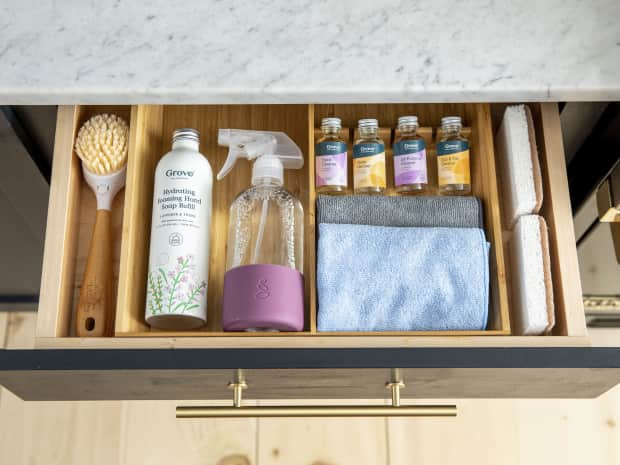
Ready to ditch conventional cleanerst? Here’s what to know when making the green cleaning switch.
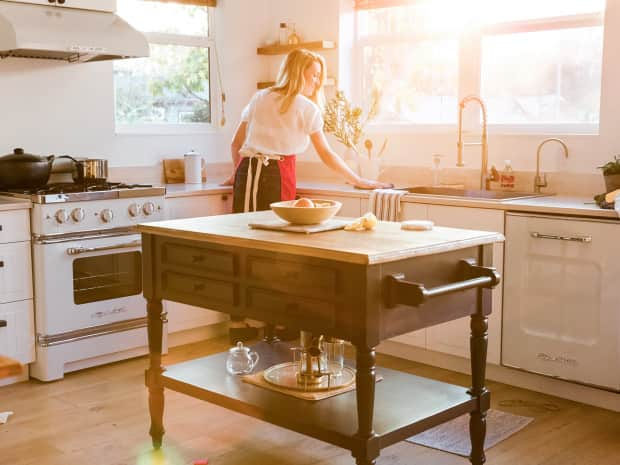
We found the germiest items that most people forget to clean so you can take inventory and start cleaning.

Thymol is a plant-based ingredient used in natural disinfectants. But does it really kill viruses?